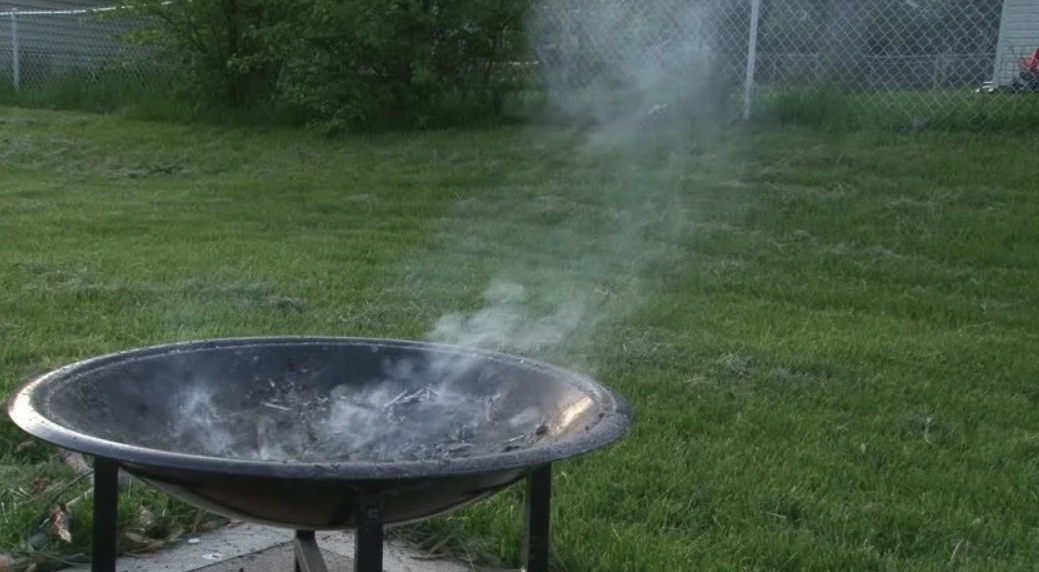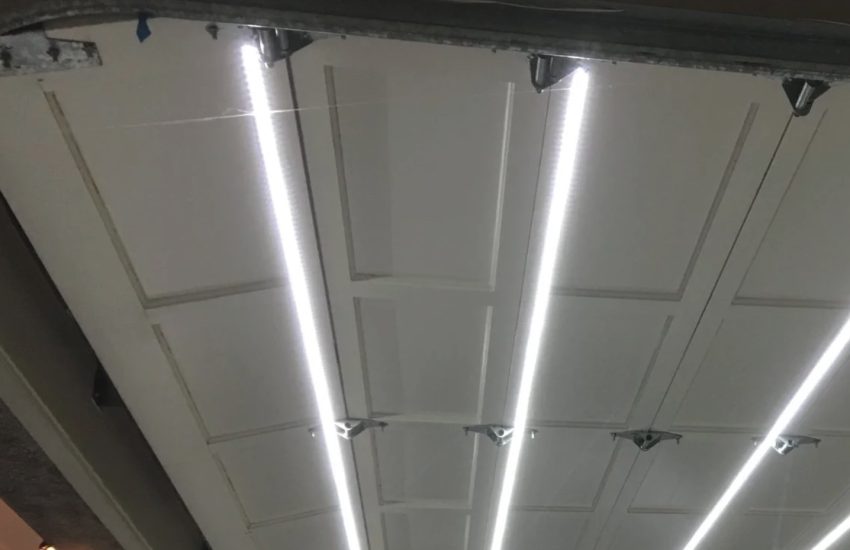How to Divert Smoke from a Fire Pit
Spending time out by a fire can be a relaxing way to catch up and enjoy the company of your loved ones. However, if the fire pit makes too much smoke, it can irritate your senses and disrupt your good time.
Here’s how to divert smoke from a fire pit:
Why is My Fire Pit Smoking So Much?
It’s impossible to have a wood-burning smokeless fire pit. However, if your fire pit is making too much smoke, it might be due to the following reasons:
High Sap Content in Your Wood
Burning certain wood types containing pitch or sap and other naturally occurring substances can lead to excess fire pit smoke production.
Improperly Seasoned Firewood
Seasoned wood is firewood with a moisture content of at least 30%; the lower, the better. It gets to that moisture level through an indoor or outdoor aging process under the right conditions or after a much quicker and more expensive but thorough kiln drying process.
Dry wood burns efficiently, and as a result, it doesn’t smoke a lot. On the other hand, freshly cut wood is made mostly of water, which won’t allow the wood to burn the way you want it to. It will smoke badly.
Additionally, older wood that was chopped and split months or years ago can burn poorly if it’s constantly exposed to wet weather conditions and not allowed to dry fully.
Firewood dried and seasoned over time will naturally have a lighter feel when handled, have no noticeable smell, have a more hollow sound when contact is made, and have a bit of gray tint, depending on the seasoning conditions.
Use the right firewood at the right moisture level to reduce fire pit smoke effectively.
Debris Buildup in Your Fire Pit
Old and potentially damp ash, embers, and other debris accumulated in your fire pit from recent burns could slow the ignition of your current fire, resulting in a fire pit that’s smoking so much.
Wood Chemicals are Heated Inefficiently
Wood smoke primarily comes from burning certain chemicals that are part of hardwood’s natural makeup, such as ash, hickory, and oak, and softwoods like spruce, fir, and pine.
When these chemicals are heated inefficiently, they turn to smoke, released into the air around your fire pit.
These chemicals are typically burned off quickly in an efficient, well-burning fire before smoke can form significantly.
Improper Stacking of Wood
Improper stacking of wood during the fire building process can cause fuel to smoke instead of burn, contributing to a lot of smoke from your fire pit.
Other factors, such as wind, also play a small role in producing too much fire pit smoke. So, in addition to avoiding too much fire pit smoke, you’ll also want to ensure that you keep your fire pit out of high windy areas for safety reasons.
Household Waste
Certain types of treated wood or cardboard smoke heavily when burned in a fire. So not only will you have to deal with fire pit smoke inhalation, but you might also have to deal with certain smells that might not be healthy for you and your loved ones.
How Do You Make a Fire Pit Vent Smoke in One Direction?
You might be overwhelmed when browsing for fire pits because of the different features that they have to offer. For example, one of the features that some fire pits have while others don’t is an air vent. You might think an air vent is fancy; however, your fire pit needs air vents to maintain a good flame.
You can make a fire pit vent smoke in one direction by creating an air vent if your fire pit doesn’t have one. An air vent is essential because if your flame doesn’t get enough air, the fire will die down, and the wood will start to smoke.
Remember that fires cannot survive without proper airflow; therefore, ensuring that your fire pit has enough air vents is critical. However, no hole in the fire pit will do; they have to be a certain size and positioned in the right place; otherwise, your fire pit might not get enough air, or sparks will come out of the air vent.
For example, wood-burning fire pits need ventilation to ensure the fire has enough oxygen to continue burning and prevent carbon monoxide buildup.
How to Make a Fire Pit Less Smoky
If your fire pit is making too much smoke, you might not enjoy quality time with your loved ones around the fire. You can deflect smoke from the fire pit if you want quality time. Here’s how you can make a fire pit less smoky:
Use Properly Seasoned Firewood
The simplest and most efficient way to reduce fire pit smoke is to use good, well-seasoned hardwood.
Any moisture in the wood will cause additional smoke. Using softwood as your primary fuel will also produce far more smoke than hardwood.
Kiln-dried seasoned hardwood is your best option for making your fire pit less smoky.
Store Your Wood Well
Getting the best-seasoned wood will help make your fire pit less smoky. However, if you can’t store your wood well and ensure it stays nice and dry, then you will have an issue with excess smoke.
Protecting your woods from the elements, particularly the wet, cold winters, is essential if you want to maintain the quality of wood you want to burn.
It’s best to get a good log store for your wood because it will protect your wood and also be a good addition to your outdoor space.
Only Burn Your Seasoned Wood
To reduce fire pit smoke, you shouldn’t burn anything other than your seasoned hardwood.
Don’t be tempted to throw empty packets, cardboard boxes, or newspapers in there because they burn very inefficiently and will produce a lot of smoke. Burning other stuff might be a great way of getting rid of rubbish; however, don’t do it.
Build Your Fire Correctly
It’s essential to build your fire correctly if you want to burn firewood without smoke. If you build your fire correctly, there will be just the right amount of airflow, which is very important to keep fire pit smoke at a minimum.
Throwing a few logs into the fire pit with some kindling may not get it done. You will likely end up with a smoldering fire pit fuel instead of a raging fire.
Clean the Fire Pit Often
Any bits of debris in your fire pit can cause additional smoke. Be sure to clean the leftover ash and wood shavings because they can contribute to your fire pit being smoky than usual.
It’s best to ensure that your fire pit is clean before every use if you want to avoid excessive smoke. Cleaning is advisable as part of your extinguishing routine, rather than just before you use the fire pit.
Is Smoke From a Fire Pit Bad For You?
If you’re planning to gather friends around a cozy fire pit, you should absorb the atmosphere, not the smoke.
Fire pit smoke inhalation could hurt your respiratory system because wood particles contain millions of tiny particles, which are unhealthy for your lungs.
You might have experienced stinging eyes, coughing, and a runny nose when sitting near a smoky fire pit. However, such symptoms are short-lived for most people, but inhaling smoke is dangerous if you have an underlying respiratory illness.
Additionally, breathing in too much smoke from the fire pit can irritate your nose and throat, making your nose run and your throat hurt. You might also have a burnt throat, accompanied by a cough, chest pain, shortness of breath, a headache, and fainting. Too much smoke can also affect your voice, leaving you sounding hoarse.
You can enjoy your fire pit safely by not sitting too close to it and not breathing in the smoke. However, having a fire pit might not be a good idea if you have an underlying respiratory condition because inhaling smoke from wood, even briefly, can cause a chain of airway tightening, and you might end up in the emergency room.
It’s best to take necessary precautions if you have an underlying respiratory condition. For example, sit as far from the fire as possible, and pay attention to which way the wind is blowing.
In addition to avoiding inhaling fire pit smoke, you should also be wary of the heat from the fire pit. Inhaling air consistently at a higher temperature than the surrounding air can cause more damage to the lining of your lower respiratory tract than smoke inhalation.
Feeling intense heat on your face or hands indicates that the air you’re breathing is too hot, and you should move back from the fire.
You can reduce fire pit smoke by following the above tips. Remember that less smoke means you can enjoy quality time around the fire pit and have fewer health complications.


